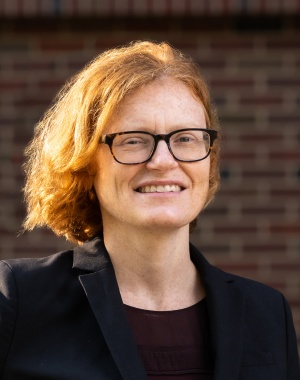
A new report by the National Academies of Sciences, Engineering, and Medicine (NASEM) lays out a new vision for high-quality preschool curricula that support equitable early education for all children. The report recommends that in the next five years, federal agencies, school district and state policymakers, foundations and funders, publishers, and teacher educators should transition to evidence-based curricula and support the revision of existing curricula and the development of new curricula to align with this vision.
NASEM convened an ad hoc committee of 13 education researchers and policy practitioners—including the Ford School’s Education Policy Initiative co-director Christina Weiland—in 2022 to conduct a study on Pre-K curriculum quality for children ages three through five, with special attention to the needs of Black and Latinx children, dual language learners, children with special needs, and children experiencing poverty in the United States. The committee reviewed research on early childhood development, including research on access to contemporary early learning opportunities, and considered the lived experience of diverse young children, their families, and early childhood educators.
“Too many preschool programs use curricula that under-deliver for children and teachers. We can do better,” said Christina Weiland, associate professor at the Marsal Family School of Education and the Ford School of Public Policy. “This consensus report provides a path towards content-rich, evidence-based, and culturally responsive curricula that can help provide all children with a strong start.”
Despite decades of research linking high-quality preschool to positive social and academic outcomes, access remains unevenly distributed, the report says. The report also highlights that the most widely used curricula in public preschool programs have been repeatedly outperformed by other options. The new report recommends the development of preschool curricula that:
- incorporate the perspectives, experiences, cultures, languages, strengths, and needs of a diverse range of children and families;
- include rich and meaningful content that centers child engagement and agency;
- include well-designed learning experiences, intentional and responsive teaching strategies, well-defined objectives and outcomes, embedded formative assessments, and differentiation based on understanding children’s ability levels, cultural and linguistic backgrounds, interests, and dispositions;
- have a scope and sequence that follows children’s ways of thinking and learning with research-validated learning trajectories, are culturally and linguistically affirming, and include effective supports for children with disabilities; and
- demonstrate effectiveness in yielding positive school and life outcomes for children and families.
The study was undertaken by the Committee on a New Vision for High Quality Pre-K Curriculum and sponsored by the Bill & Melinda Gates Foundation and the National Academy of Sciences’ W.K. Kellogg Foundation Fund.
The National Academies of Sciences, Engineering, and Medicine are private, nonprofit institutions that provide independent, objective analysis and advice to the nation to solve complex problems and inform public policy decisions related to science, engineering, and medicine. They operate under an 1863 congressional charter to the National Academy of Sciences, signed by President Lincoln.
Read “A New Vision for High-Quality Preschool Curriculum” here.
Excerpted from the National Academies of Sciences, Engineering, and Medicine press release.
